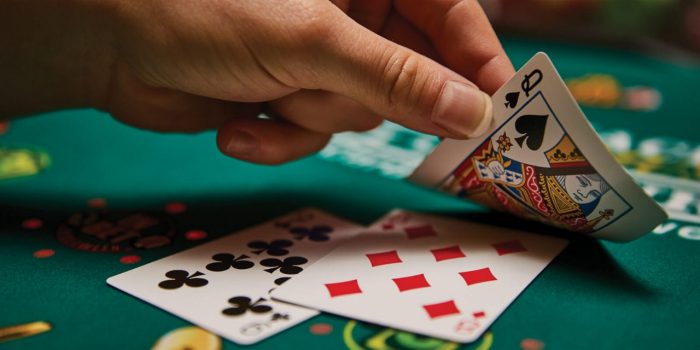
Poker is an exciting game of skill, strategy and luck. It’s a popular hobby, brought to millions of people around the world by TV and internet, and it can be played for real money or just for fun. However, it requires a great deal of mental strength to play well at poker.
Whether you’re playing on the Web or at a live table, there are some basic strategies that every beginner needs to know. These strategies will help you make better decisions at the table and win more money.
1. The most important thing to keep in mind when starting out is to never fold your weakest hand!
It is a very common mistake for beginners to fold their weakest hands, and it’s an easy trap to fall into. It’s much more effective to bet aggressively with these weaker hands, which will allow you to build up a large pot and give you more money to win with your stronger hand.
2. The first step to playing a good poker game is to learn the betting patterns of your opponents.
You’ll notice that some players like to bet aggressively at lower stakes, while others will play more tightly at higher stakes. This is an important factor in poker, as it can determine your ability to win and lose in the long run.
3. If you have a strong opening hand, bet more and more aggressively when playing at lower limits!
A strong opening hand, such as a pair of Kings or Queens, is a fantastic hand to bet aggressively with at lower stakes. It will get a lot of action and you’ll be able to build a large pot.
4. A high-stakes player is more likely to bluff than a low-stakes player.
If you’re new to poker, you should avoid playing against high-stakes players at the beginning. This is because they’re often more aggressive and they can bluff you off your money more easily.
5. Fast-play your strongest hands
Top players fast-play their strongest hands because they want to build the pot and win more money. They also believe that the faster they play their hands, the more likely they are to catch a draw or have a big hand come their way.
6. Take bad beats with grace
If you play poker on a professional level, you’ll have to take some bad beats and not get too upset over them. It’s not fair to your bankroll or reputation if you let a bad beat spoil your confidence.
7. Improve your physical poker game
If you aren’t in the best physical condition, it’s going to be difficult to play well at the table. It’s important to work on your stamina, which will enable you to play longer games with more focus and attention.
8. Be a good teammate
Poker is a social game, and it’s important to work well with your teammates. It’s also a good idea to play with people of a similar skill level, so that you can compare notes and learn from each other.